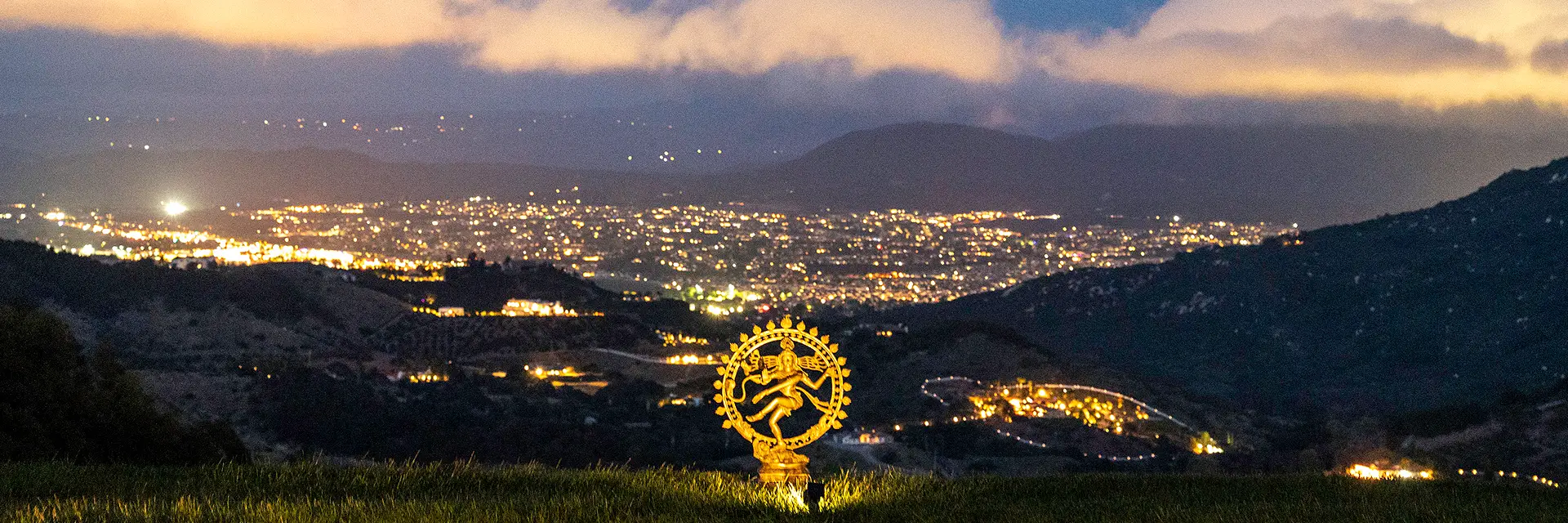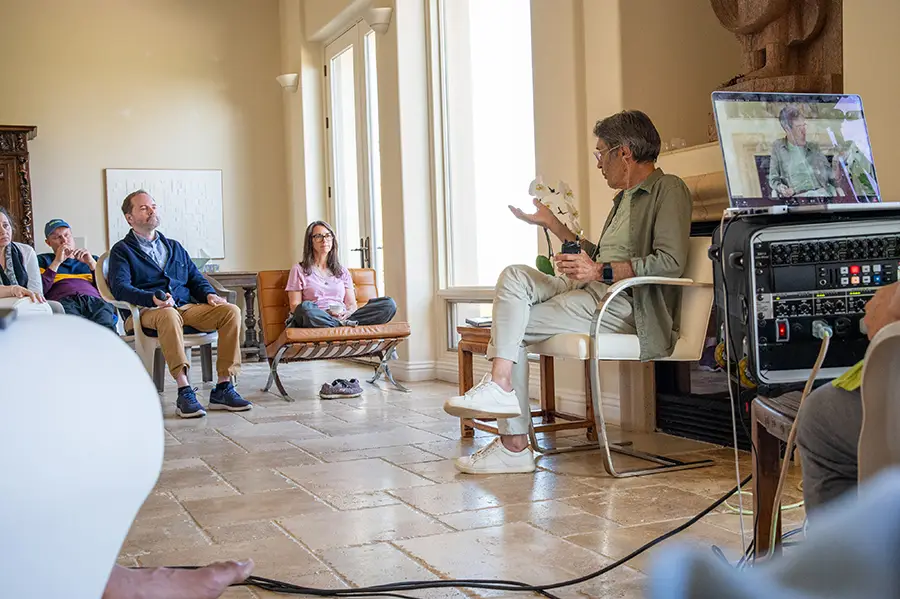About
Advaita Vedanta

The term Advaita is a Sanskrit word that literally means “not two.” This refers to the highest teaching of Advaita Vedanta: that there is only one reality. Advaita, often translated as non-duality, is not a philosophy or a religion. It is the experience of our true nature, which is revealed as absolute happiness, love, and beauty.
Advaita, in its purest form, is transmitted from generation to generation by a line of sages. Ramana Maharshi, Krishna Menon, and Jean Klein were such sages who taught in the 20th century. Their approach was distinctive in that they directly pointed to the experience of a spiritual aspirant’s true nature. This teaching, Advaita Vedanta, is called the direct path.
Across traditions and methodologies, sages from various backgrounds converge on a shared recognition of non-duality. This understanding is shared in the teaching of the founders of all the world’s great religions and traditions.
Hinduism: “That which is not (objects as separate from the Self) never comes to be, and that which is (The Self) never ceases to be.” (Bhagavad Gita)
Hinduism, Kashmir Shaivism: “Oh Wonder! This illusion, though expressed in multiplicity, is nothing but secondless consciousness. Ah, all is pure self-aware essence!” (Abhinavagupta)
Sufism: “There is nothing but God”
Zen Buddhism: “Question: When a sound ceases, does consciousness cease? Answer: Consciousness never ceases” (HuiHai)
Hinduism, Kashmir Shaivism: “The universe awakens when You awaken and disappears when You withdraw. Therefore, the entirety of existence and non-existence is one with you.” (Abhinavagupta)
Christianity: “Jesus said: ‘I’ is the light (of consciousness) that shines upon all things. ‘I’ is the All from which everything emanates and to which everything returns.” (Thomas, 186)
The Path Towards Enlightenment and Self-Realization
Enlightenment is the sudden recognition that non-duality is, has always been, and will always be the reality of our experience. Self-realization is the subsequent stabilization in the peace, happiness, and freedom of our natural state.
A living master is, in most cases, necessary to facilitate both enlightenment and self-realization. While any person or thing can serve as an upa guru, pointing a seeker the way, it is ultimately the karana guru who serves as the final teacher, guiding the disciple through the last stages of realization. A relationship of love, freedom, and friendship leads to stabilization in the happiness and peace of our true nature.
